Shams Tabrizi (Biography, Quotes, Poems, Miracles)
If you are an individual who shows a deep love for Persian poetry or history, you might have heard about the great Persian poet and Sufi, Shams Tabrizi. He was the spiritual instructor of Mewlānā Jalāl ad-Dīn Muhammad Balkhi, also known worldwide as Rumi. Nonetheless, the true identity of Shams Tabrizi is yet unknown and a mystery to historians since he spent most of his days traveling around various lands, but Rumi’s masterful books and poems have revealed bits of Sham’s identity to the world.
Shams Tabrizi Biography
Shams Tabrizi is a very popular historical figure in Persia. His name “Shams,” meaning “the sun” in Arabic and Persian, represents his personality and importance. Tabrizi refers to the city of Tabriz in Iran, where Shams was born. Shams was not only a poet in his time of living but also the most significant figure who changed Rumi’s way of thinking and his path in search of the truth. According to Rumi, Shams was the man who gave life to him, as Rumi defines his journey as being born once again in the same life.
Shams Tabrizi Childhood
Shams Tabrizi, like any other historical figure, was born into a family, lived his life, and finally vanished from this world without a trace. Even though his story still appears as an enigma to many, not knowing his true age or the authentic evidence about where he first stepped into the world of the living and how he died.
According to some historians, Shams Tabrizi was born in 1185 AD in the city of Tabriz, located in the Northwest of Iran. His childhood was very different from the other children around him. Shams was not very fond of going to school but preferred to study and read the books he selected for himself.
Being an incomparable child, his parents often found it difficult to communicate with him since his behavior was completely different from the children in his age. Shams Tabrizi faced many challenges in his life and oftentimes felt alone in the world, unable to communicate with others as no one understood him.
His Spiritual Journey
Therefore, he pilgrimaged to far lands to find people who spoke the language of mysticism and started learning from them. One of Shams Tabrizi’s teachers was Sheikh Abu Bakr Zanbil Baf of Tabriz, in which he taught Shams a lot.
Over the passage of time, Shams Tabrizi reached a high level of mysticism and spirituality where he no longer found the words of Abu Bakr meaningful; thus, once again, he let go of his teacher and continued his pilgrimage.
Ambiguous Identity
Because of his habit of continuous traveling and absence from fulfilling his spiritual journey, Shams Tabrizi’s personality is full of ambiguity and obscurity in all historical works. You will find countless portraits of Shams in various books and artworks, yet these images are mostly an uncertain prediction of his true features.
Shams Tabrizi Death
Just like his identity and life story, how Shams Tabrizi died will always be a mystery to us. However, there are certain estimations about the year of his passing, and some believe he passed away at the age of 63 in 1248 AD.
Shams Tabrizi and Rumi Story
All in all, the story of Shams Tabrizi and Rumi is one of the most magnetizing stories read by millions to this day. The story speaks both about Rumi’s journey, thoughts, and feelings during his change, as well as Shams’ teachings when Rumi was by his side.
In Rumi’s poetry, you often see him calling Shams with diverse titles, which depicts his love and respect for his teacher as he perceived Shams as the true face of God.
Life for Mewlānā Jalāl ad-Dīn Muhammad Balkhi as a religious scholar was almost normal and in complete peace. At that time, Rumi was one of the scholars of Fiqh, which is Islamic jurisprudence, hadith (the words of Prophet Muhammed), and other religious education in the city. Rumi’s lectures were always filled with his eager students, enthusiasts, and devotees of Islam.
Perhaps it can be estimated that the turning point of Rumi’s life happened around the year 1240s when he met a wandering and mysterious Sufi named Shamsuddin Tabrizi in Konya, Turkey. It was Shams Tabrizi who was able to introduce Rumi to the deepest and highest levels of mysticism and turned him from a pious religious scholar to a passionate mystic and poet.
At the same time, Shams Tabrizi had dreamt about his mission in Konya that he had to find a scholar. So, he returned from his journey and was eager to convey his spiritual teachings to a student and find the person who would listen to his words of wisdom. Shams entered the city of Konya. Once Shams Tabrizi and Rumi met in the city, Rumi was bewildered by his words and presence. Eventually, he became Shamsuddin Tabrizi’s student, which led him to go through a massive change in his life.
You can learn more about Rumi and his life story by watching our YouTube video.
Most of Rumi’s students and followers did not even consider Shams worthy to keep up with their great teacher and did not even try to hide their jealousy and hatred towards Shams. Devotees of Rumi were afraid that the reputation and credibility of their great Sheikh would be tarnished by the companionship of Shams Tabrizi. But Rumi considered Shams to be the most perfect manifestation of God and expressed his love and devotion to him by composing poems and walking on his path.
Rumi was so shocked and amazed when he met Shams that he willingly gave up teaching in schools and mosques. Shams, the unknown teacher, encouraged the famous Mewlānā Jalāl ad-Dīn to abandon his teachings and transformed him into a different man, where instead Rumi began dancing Sama (the whirling dervish dance of Sufism), which then caused him to also write poetry by his own volition.
What Did Shams Say to Rumi?
We are not confident about the true story of Shams and Rumi’s first encounter because there are many and even contradictory narrations regarding their first encounter. Based on one of the narrations, Shams Tabrizi stops the teachings of Rumi and angers his devotees to ask a question from the great Mewlānā without respecting their customary manners. The surprised and angry students heard the question from Shams in that manner asking: Was Prophet Muhammad superior to Bayezid Bastami?
Rumi is completely confused by this question. “Muhammad (p.b.u.h.) is the head of all prophets. How can you compare Bayazid Bastami to him?” Rumi asks.
Shams asks again: You are pure and pious from what we know about you. But isn’t my dignity more significant than anything else?
Shams claimed Bastami had a higher spiritual position than Prophet Muhammed.
Rumi is surprised by the depth of the question. He immediately descends from his seat and finally answers that Muhammad is greater because Bastami had stopped at some point on his holy journey. While the way for the prophet is always open.
Shams Tabrizi questioned his beliefs further, and from then on, Rumi was attracted by the words and fascinated by the personality of this wandering mystic. From that day on, the two spent long hours alone with each other, learning the words of wisdom. Rumi saw the perfection and originality of a human being in Shams Tabrizi. Shams freed Rumi from the materialistic ties of the world and challenged the customs and beliefs that this famous scholar strictly adhered to.
Forty Rules of Love of Shams of Tabriz
“Forty Rules of Love” is the original name of a novel by Elif Shafak, which was translated into Persian as “Mellat-e Eshgh”. In this book, the forty rules of Shams Tabrizi are quoted from the character of Shams.
On the other hand, these rules are of Sufism and finding God through love and devotion, which were presented to Rumi by the great Sufi of the 7th century of the Islamic calendar, that is, Shams Tabrizi. In addition, these forty rules can help the lost individuals of the present age. This book represents the way of spiritual travel, a journey inside and outside.
“The Third Line,” is the title of another book about Shams Tabrizi written by Dr. Naseruddin Sahib al-Zamani, portraying Shams Tabrizi’s personality, words, and thoughts. The book contains the dialogues between Shams and Rumi and single quotes by Shams Tabrizi.
Shams Tabrizi Quotes from the Forty Rules of Love
Rule 1: The way we perceive God is a direct reflection of how we see ourselves. If God brings to mind mostly fear and blame, it means there is too much fear and blame welled inside our hearts. We are also full of love and compassion if we see God as loving and compassionate.
Rule 3: You can study God through everything and everyone in the universe because God is not confined to a mosque, synagogue, or church. However, if you are still in need of knowing where exactly His abode is, there is only one place to look for him: in the heart of a true lover. No one will live after seeing Him, and no one will die after seeing Him. Whosoever finds Him will remain in His company forever.
Rule 4: Intellect and love are made of different materials. Intellect ties people in knots and risks nothing, but love dissolves all tangles and risks everything. Intellect is always cautious and advises, ‘Beware too much ecstasy’ whereas love says, ‘Oh, never mind! Take the plunge!’ Intellect does not easily break down, whereas love can effortlessly reduce itself to rubble but treasures are hidden among ruins. A broken heart hides many treasures.
Rule 10: East, west, south, or north makes little difference. No matter what your destination, just be sure to make every journey a journey within yourself. If you travel within, you will travel the whole wide world and beyond.
Rule 13: There are more fake gurus and false teachers in this world than the number of stars in the visible universe. Do not confuse power-driven, self-centered people with true mentors. A genuine spiritual master will not direct your attention to himself and will not expect absolute obedience or utter admiration from you, but instead will help you to know and to appreciate your Inner-self. True mentors are as transparent as glass, ‘They let the light of God pass through them’.
Shams Tabrizi Poems
Shams Tabrizi did not enjoy writing and preferred speaking in his own words. The works left in the name of Shams are taken from the sayings of Shams in gatherings, which were later collected and written by Rumi and his entourage.
In the collection of Shams Tabrizi’s quotes, the book contains questions, answers, and discussions that were exchanged between Shams and his students. These dialogues have an interesting story in their hearts that Rumi taught to his students during his association with Shams Tabrizi and after him. His disciples collected them and wrote them down. The subject of these stories is the personality and life of Shams Tabrizi in Konya, his relationship with Rumi, and the anecdotes that Shams taught Rumi through them.
Divan-i Kabir, also known as Divan-i Shams and Divan-i Shams-i Tabrizi, are Rumi’s works attributed to Shams Tabrizi. The Divan-i Shams-i Tabrizi is one of the works of Mawlānā Jalāl-ad-Dīn Muhammad Balkhi, which he registered the book under the name of Shams Tabrizi.
Shams Tabrizi Miracles
One day, Shams entered the school of Konya, where Rumi was reading his books. He asked Rumi, who had some other books placed next to him: “What are these?”
Rumi answered: “These are the books of Quotes and Sayings of the Prophet.”
“What are you doing with these?” Shams said and then threw the books into the nearby pond.
“Oh Dervish, some of these books are my father’s souvenirs and the unique and rare copies,” Rumi said.
Shams Tabrizi dipped his hand in the water and took the books out of the pond, but the books did not appear to be wet at all. They were as intact as they were before being thrown into the pond.
Rumi asked with surprise: “What is this secret?”
Shams answered: “This is the secret that you are not aware of.”
With this, Rumi’s nature changed, and he abandoned the lessons he taught and faced madness, then was born again. He achieved an esoteric experience that not everyone was able to understand.
Final Word
Mewlānā Jalāl ad-Dīn Muhammad Balkhi, known as Rumi, is one of the most famous poets of Iran. During his 68 years of living, Rumi met great people such as Mohaghegh Tirmezi, Sheikh Attar, Kamaluddin Adeem, and Mohiuddin Arabi and learned a lot from them, but no one was as influential in his life as Shams Tabrizi. Furthermore, the stories about Shams Tabrizi are not proven to be fully authentic, and all the information we have about his life are the poems that Rumi has written in his epic books.
Are you planning to travel to Iran and looking for an Iran travel agency? Check out our Iran tours and feel free to contact us.

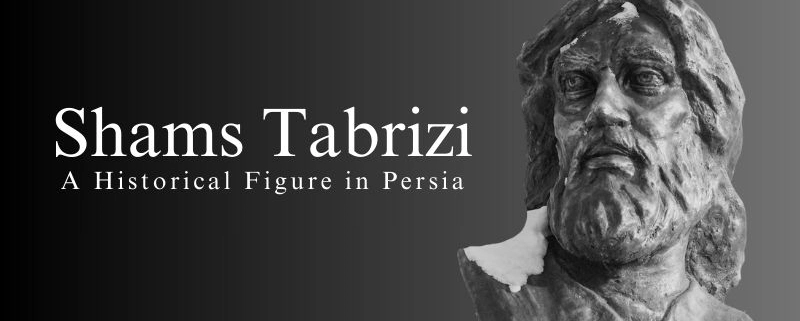
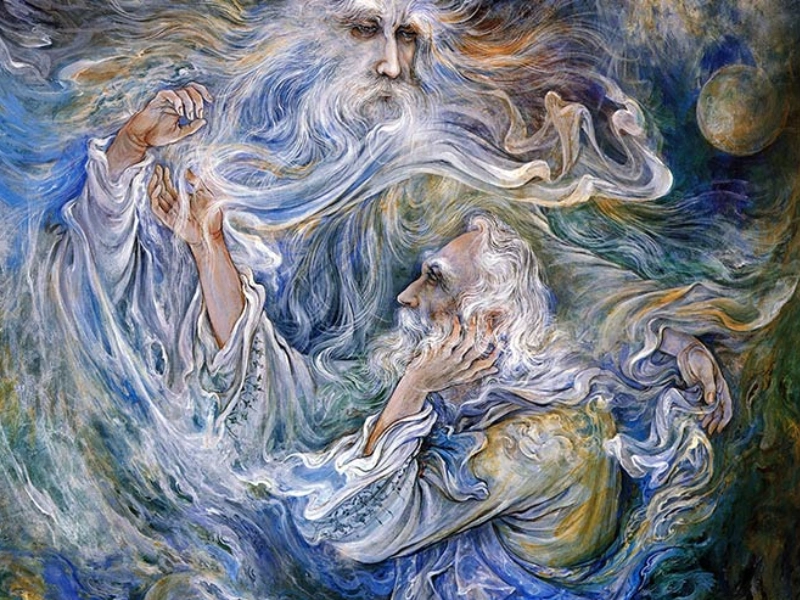
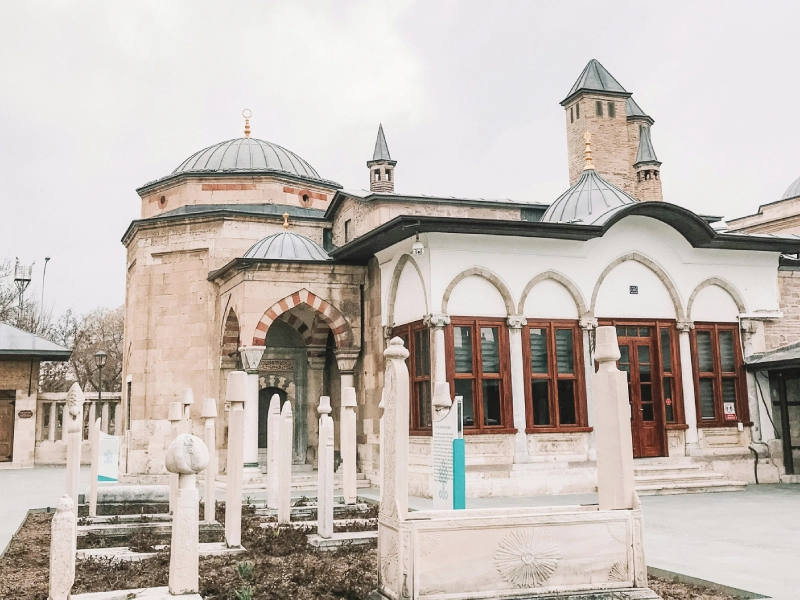

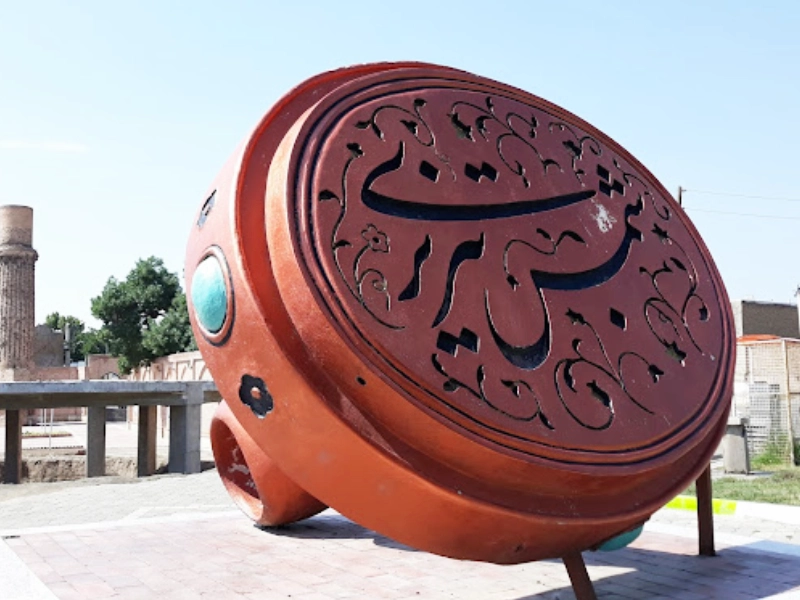

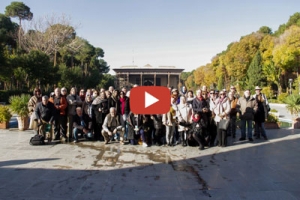


With love only miracles are possible.Jesus,Kabir,Krishna,Mohammad did it.